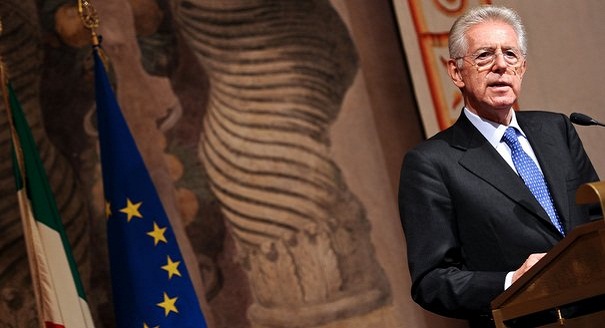Every week leading experts answer a new question from Judy Dempsey on the international challenges shaping Europe's role in the world.
Jonas Parello-Plesnersenior policy fellow European Council on Foreign Relations
Even if Monti’s announced departure leads to some renewed bond jitters, this isn’t the end of the euro. Rather it is the continuation of Italian democracy.
Monti has delivered stability for his country in a difficult time and should be thanked for that. Italy needs reforms and Monti has kick-started that arduous process. But by now, it is a sound step for Monti to make space for elections to restore confidence in Italian and European democracy.
Monti and any other European leader might completely deliver the right crisis resolution initiatives but if these aren’t backed by the people they will lack long-term legitimacy. We can’t insert an EU commissioner in every European country instead of elected politicians, however enticing it might be to some technocrats. Thus, policy should be contested in elections. Off course, in Italy, the specter of a return of Berlusconi haunts the political scene but the left-wing candidate, Bersani, seems more tuned in to the necessity to continue the reform track laid out by Monti.
European democracies, including the Italian one, aren’t governed by markets and bond spreads, but by people. Otherwise, we might save the euro’s value but corrode the real pillar of European values which is our political system. This was also the foundation for the European peace project among democracies hailed this week in Oslo and globally.
Gianni Riottamember of the Council on Foreign Relations
The euro will survive. However Europe will pay a price. Mario Monti has been a mighty force vis-à-vis France and Germany, mediating, negotiating, cajoling. He knows the inner mechanisms of Brussels better than any other leader. They may be savvier or more powerful, yet they defer to professor Monti’s experience and moderation when push comes to shove. Monti will be missed in Brussels and in Rome: yet the euro’s perilous course will continue plodding on.
Stephen F. Szaboexecutive director at GMF, Transatlantic Academy
As Charles de Gaulle once pointed out, the cemeteries are filled with indispensable men. Monti played an important role in bringing some stability and breathing space for Italy and he could have used more time but he was an unelected technocrat in a democracy. At some point the voters have to decide and, although we may think of Brecht’s reflection after the East German uprising of 1953 that perhaps we should elect a new people, legitimacy in the end requires a popular mandate. The soon-to-be Bersani government may not complete the reforms Monti began but it will not be able to ignore the pressures from the EU, the IMF, and the markets. Monti is likely to stay in the game as well, perhaps as the president of the republic and Mario Draghi will also play a role. The fate of the euro lies more in Berlin than in Rome in any case.






